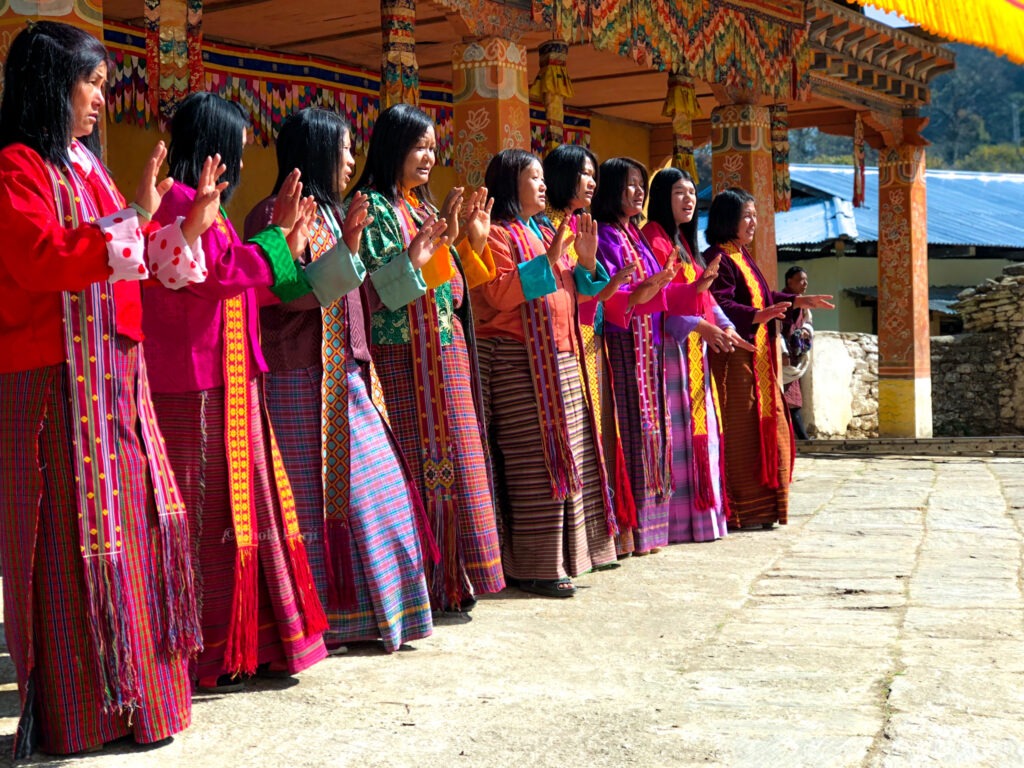ZHUNGDRA – BHUTAN’S OLDEST TRADITIONAL FOLK MUSIC
Zhungdra is the oldest style of traditional Bhutanese folk music and it is distinguished by the way it is sung using extended vocal tones in complex patterns.

Singers and dancers form a long line and hold hands when they sing the song. They move in a slow, synchronized order, following the lyrics of the music.
According to experts Zhungdras were composed in the old days by spiritual leaders and therefore contain spiritual messages.
True Zhungdra consists of 13 songs, performed only once every year during the Punakha dromchoe along with the masked dances.
It was first performed in the 17th century to commemorate the victories over the Tibetans. Then, it was performed as a gesture of appreciation to the protective deities Yeshey Gonpo and Pelden Lhamo.
Zhungdra gained popularity during the time of Second King, but it was allowed to be performed only during the Punakha dromchoe. Somehow, during the Third King’s time, the rules were relaxed and Zhungdra began gracing other occasions as well.
Today, however, there are only about five real Zhungdra singers left in the country.
“With digitalization, the taste in music is changing. There are only a handful of people who like Zhungdra music today. And you cannot grudge that. Change is inevitable,” folk singer Jigme Drukpa says. “But, what is sad is that Zhungdra is dying without a patronage, market, appeal and presence to the present generation.”
As Zhungdra is bent towards spirituality and devotion as the songs were composed by trulkus and lamas, it is difficult for the younger generation to embrace it.
“Today we are living in a fast-paced world with fast-paced music. People hardly have time to sit and listen to a slow Zhungdra song and soak in the lyrics,” Drukpa says. “The true essence of Zhungdra is lost in the midst of oral transmissions. It changes with the change in dance movements, songs and lyrics.”
What is disheartening is the fact that it is difficult to preserve Zhungdra without proper archival and documentation. Zhungdra is not meant for entertainment purposes and has thus lost its value among the commercially-driven music industry.
“Today, music in Bhutan is only meant to entertainment and therefore, sadly, Zhungdra has lost its authentic, aesthetical and traditional value,” he says. “But, there is hope still as we are in the process of documenting and archiving this ancient music form.”

